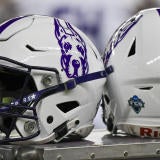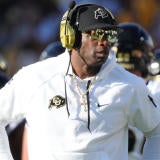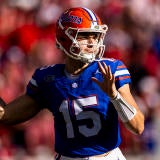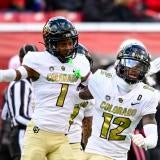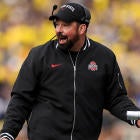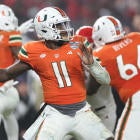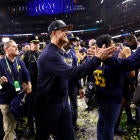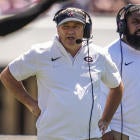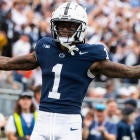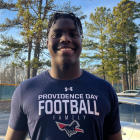Electronic Arts would have paid college football and men’s basketball players for the use of their names, images and likenesses in NCAA video games if not for NCAA rules prohibiting such payments, lawyers for the Ed O’Bannon plaintiffs wrote in a court filing late Tuesday night.
In a brief outlining next week’s trial in U.S. District Court in Oakland, the O’Bannon plaintiffs wrote they will provide “documentary evidence and testimony” from EA executive vice president of business and legal affairs Joel Linzner showing that although EA followed the NCAA’s rules, “it nonetheless wanted to obtain the rights for more precise likenesses and the names of every college athlete on each roster, for which EA was willing to pay more to the NCAA and the college athletes themselves.”
The trial brief quotes then-NCAA president Myles Brand as saying in 2006, “[I]t is far from certain that the presidents will agree to providing names and [better] likenesses in video games. They may decide to leave the money on the table.”
The plaintiffs wrote “EA knew that consumers wanted those improvements to the video games, and increased sales would result. But the NCAA remained steadfast in its prohibition against sharing revenues with players and worried that any additional similarities between the athletes and the video games would further expose the fiction that the video game ‘avatars’ did not represent real people.”
EA and Collegiate Licensing Company, which licensed the NCAA-themed video games, settled their claims with various plaintiffs for $40 million. EA discontinued production of its football and men's basketball video games.
“The irony is that’s about what they would have paid the players if they were allowed to do so,” O’Bannon lead attorney Michael Hausfeld said in a recent interview.
The inclusion of EA in the O’Bannon trial is an attempt to show there is a marketplace for group licensing of college athletes’ names, images and likenesses. The plaintiffs are seeking an injunction to end the NCAA’s ban against football and men’s basketball players from being paid for use of their name, image and likeness.
“But for the restraint, EA would still be producing video games -- better video games that consumers crave,” the plaintiffs wrote.
The trial brief reaffirms the plaintiffs’ position of deferring licensing compensation to players until after they leave college. One possibility they mention again is payment for use of a college athlete’s name, image and likeness would go into a trust fund that’s disbursed only after graduation or eligibility expires.
“Other alternatives include those actually raised by the NCAA, EA, or Collegiate Licensing Company, such as mandating or encouraging member schools to share revenues derived from (names, images, likenesses) licensing with college athletes through the creation of a fund,” the plaintiffs wrote.
Previous emails released in the O’Bannon case showed that CLC considered creating a new licensing and marketing arm in 2009 for former high-profile college athletes. The idea was presented after the lawsuits over video games were filed by O’Bannon and Sam Keller. The concept would “assure that the licensing and marketing rights of former collegiate student-athletes are protected and revenue opportunities are pursued,” according to a CLC outline.
The plaintiffs also suggested the NCAA could revise its definition of “pay” to allow for some or all forms of names, images and likenesses licensing. Also, the plaintiffs said the NCAA could abolish the restraint nationally and allow individual conferences and their schools to authorize or prohibit sharing licensing revenue with players.
The brief also reflects that real-time developments by the NCAA could play out at next week’s trial, noting that the NCAA is exploring legislative proposals to provide increased flexibility for use of likeness. Under a proposal being considered, athletes would be able to “use his or her likeness to advertise their business or place of employment, even if they received the position because of their athletic ability,” the plaintiffs wrote.
The O’Bannon plaintiffs have yet to spell out the exact language of the injunction they’re seeking but described it this way: “Free market forces would then determine whether schools decide unilaterally to compensate college athletes for use of their (names, images and likenesses) and whether to do so by group license.”
The trial brief lays out many of the arguments their lawyers will make next week. For instance, the education of college athletes will be on trial. One of the NCAA’s defenses for not paying players is the integration of athletics and education.
“The evidence will show that Division I football and basketball players are simply not receiving the same education as their peers in the student body,” the plaintiffs wrote. “Unlike their counterparts, college athletes are not ‘students first,’ as evidenced by … the substantial time commitment required of their sports, the attendant prioritization of athletic endeavors above academic pursuits, scholarships contingent on athletic performance, differing admissions standards, and lagging graduation rates."
The NCAA's trial brief is due Thursday. The trial begins next Monday in Oakland, Calif.






